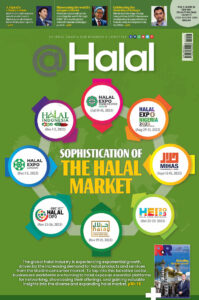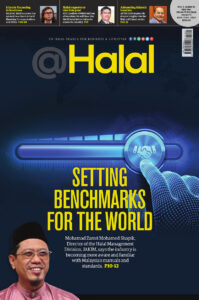More non-Muslim countries to tackle Muslim travel market after the pandemic
It is no longer a secret that the Muslim travel market offers lucrative potentials to tourism industry players. It is a fast-growing segment aided by the increasing Muslim population worldwide.
With this promising segment and the potential return in mind, more and more destinations, including non-Muslim countries like Brazil, have expressed their interests to tackle the Muslim travel market.
According to Arab News, Foz do Iguaçu, a famous city in Brazil, is preparing to become a halal tourist destination and attract Muslims worldwide.
In 2019, the city received more than two million visitors, with most of them visiting one of the largest waterfalls in South America, the Iguaçu Falls. However, the Covid-19 pandemic caused the city to experience a dramatic decline in visitors in the following year.
The city is determined to embark on a halal destination journey to recover its tourism industry.
Arab News clarified the city’s idea to become a halal tourist centre did not come out of nowhere.
It shared that Foz do Iguaçu, part of a tri-border area with the neighbouring cities in Argentina and Paraguay, has 20,000 Arab population, which is seven per cent out of its 260,000 residents, many of whom are Muslims.
On the Paraguayan side, there are also thousands of Arabs. There are also numerous Arab-owned restaurants and shops in Foz do Iguaçu. The local tour guides also provide an ‘Arab itinerary’ as part of their city tour packages.
One of the most visible signs of Arabs’ historical presence in the region is the existence of Omar ibn Al-Khattab Mosque. The mosque is an important Islamic place of worship in Latin America.
“Those are great advantages for us. There’s already a great halal infrastructure to serve the local community. We need to take those principles to hotels, with the government’s help,” said Ali Saifi, the Chief Executive Officer of Cdial Halal, a halal certification company in Brazil, who was one of the masterminds behind the project.
Mayor Chico Brasileiro quickly agreed with the idea as he’s eyeing the 1.9 billion Muslims worldwide.
“Our city has one of the world’s natural wonders, which will certainly attract many Muslims,” Brasileiro told Arab News.
“We want to expand their permanency here by making them feel comfortable with their families.”
According to local Sheikh Oussama El-Zahed, feeling comfortable during international trips to non-Muslim countries can be challenging. He said food was a primary concern when travelling abroad.
“The idea here is to offer a 100 per cent halal travel package,” he added.
A Moroccan- born, Sheikh Abderrahman Agdaou, who has lived in Latin America for 21 years, understands the importance of having available halal food while travelling.
“Many people in Latin America don’t think that there’s pork in several common food items. The same is true of alcohol,” Agdaou told Arab News, adding that Muslims have to be alert all the time.
He said some typical dishes such as pupusas, the traditional Salvadoran flatbread, might have been cooked in lard, made from pork fat.
Agdaou revealed that he encountered such issues several times in Latin America. He remembered having no food options during a 14-hour-flight from Morocco to Chile in 2000. He then stated that creating a halal tourist destination in Brazil was something to celebrate.
Agdaou said he was glad Muslim brothers in the region were launching such initiatives and stressed that Muslims had the right to feel relaxed during their leisure time.
Provide halal food
According to the news, Cdial Halal will provide halal food and practices training to Foz do Iguaçu’s tourism industry employees to welcome Muslim visitors. Hotels will have halal dishes and designated places for Muslims to pray.
Patrik Dinis, a tourist guide who offers an “Arab itinerary” to his clients in Foz do Iguaçu and Ciudad del Este told the news outlet that Brazilian tourists were very interested in exploring the Arab culture in the city.
“It’s visible everywhere, from the mosque to Arab schools and women wearing a headscarf on the streets. Muslims will “feel at home” in Foz do Iguaçu,” he said.
The President of the city’s Tourism Council, Felipe Gonzales, believed that some changes would need to be implemented.
He pointed out that the most critical step was getting the certification and opening the market.
“We want to invite Muslims to be here with their families and even to celebrate weddings here,” he said.
Brasileiro said he aimed foreign investment, including Arab countries, coming into the Foz do Iguaçu’s hotel chain.
“We presented our project in Dubai (World Expo), and I’m sure investors will come to our city soon,” he added.
Saifi said the full implementation of the project might take a year, but the city would advance a lot in six months. In addition to that, the number of Muslim tourists was also expected to grow.








